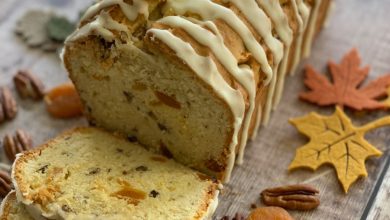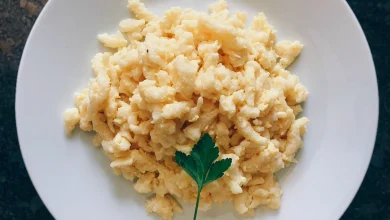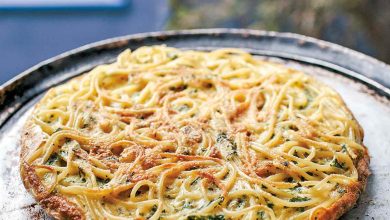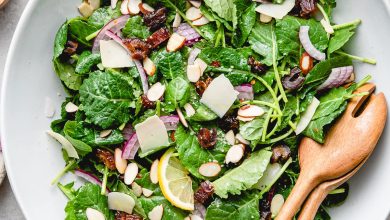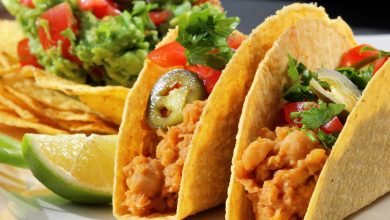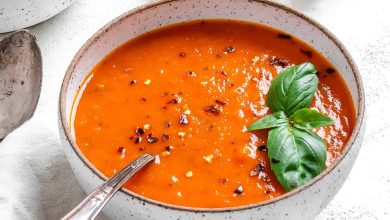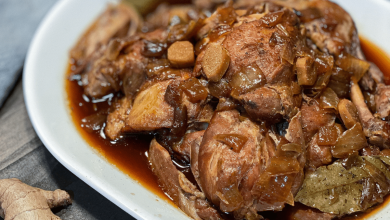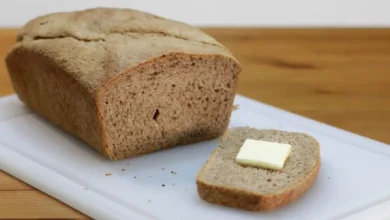Acorn Pancakes
Acorn pancakes are a unique and historically significant dish. They are made using acorn flour, which is a type of flour made from ground acorns. Here’s a detailed breakdown of what acorn pancakes are, their history, components, preparation steps, and the time needed to prepare them:
What is Acorn Pancakes?
Acorn pancakes are a type of pancake made by incorporating acorn flour into the batter. Acorn flour is produced by processing acorns, which are the nuts of oak trees, into a fine, starchy powder. This flour adds a distinct nutty flavor and texture to the pancakes, making them a delightful and unusual treat.
History of Acorn Pancakes:
Acorn pancakes have a long history, especially among Indigenous communities in North America. They were a staple food for many Native American tribes, who would gather and process acorns to create flour for various dishes, including pancakes. Acorns were valued for their abundance and nutritional value. Over time, as European settlers arrived in North America, traditional recipes like acorn pancakes became less common, but they continue to hold cultural significance for many Indigenous communities.
Components of Acorn Pancakes:
To prepare acorn pancakes, you will need the following components:
- Acorn flour: Ground acorns to make a fine flour.
- Regular pancake ingredients: These include all-purpose flour, eggs, milk, baking powder, sugar, and a pinch of salt.
- Optional flavorings: You can add vanilla extract or spices like cinnamon for extra flavor.
Steps to Prepare Acorn Pancakes:
-
Prepare the Acorn Flour: Begin by collecting acorns and removing their shells. Then, finely grind the acorns to create acorn flour. This can be a labor-intensive process, as you need to leach out the bitter tannins from the acorns. This is done by repeatedly rinsing and soaking the ground acorns in water until they become less bitter. Once leached, dry the flour.
-
Make the Pancake Batter: In a mixing bowl, combine the acorn flour with regular all-purpose flour, sugar, baking powder, and a pinch of salt. Mix well.
-
Add Wet Ingredients: Beat eggs and add them to the dry mixture. Gradually pour in milk and mix until you have a smooth batter. You can also add flavorings like vanilla extract or spices at this stage.
-
Cook the Pancakes: Heat a griddle or a non-stick skillet over medium-high heat. Grease it lightly with butter or oil. Pour a ladleful of pancake batter onto the griddle for each pancake. Cook until bubbles form on the surface, then flip and cook the other side until golden brown.
-
Serve: Serve the acorn pancakes warm, garnished with your favorite toppings such as maple syrup, honey, or fresh fruit.
Time Needed to Prepare Acorn Pancakes:
The time required to prepare acorn pancakes can vary, primarily due to the labor-intensive process of making acorn flour. Collecting and processing acorns can take several hours to a day, depending on the quantity and the method used to leach out the bitterness. Once you have the acorn flour ready, making the pancakes themselves should take about 30-45 minutes.
It’s important to note that acorn pancakes are a unique and historical dish, and the preparation process may require some experimentation to achieve the desired flavor and texture. Enjoy your culinary adventure with this traditional recipe!
Certainly, here is the nutrition information and some health considerations for acorn pancakes:
Nutrition Facts for Acorn Pancakes (per serving):
- Calories: Varies depending on serving size and ingredients used.
- Total Fat: Varies depending on cooking method and added fats (e.g., butter or oil).
- Saturated Fat: Varies depending on added fats.
- Cholesterol: Varies depending on the number of eggs used.
- Sodium: Varies depending on added salt.
- Total Carbohydrates: Varies depending on the amount of acorn flour and regular flour used.
- Dietary Fiber: Acorn flour contains dietary fiber.
- Sugars: Varies depending on added sugar.
- Protein: Varies depending on the number of eggs and milk used.
Health Considerations:
-
Nutrient Diversity: Acorn pancakes can provide a unique source of nutrients due to the acorn flour. Acorns are rich in vitamins and minerals such as vitamin B6, folate, magnesium, and potassium.
-
Dietary Fiber: Acorn flour contains dietary fiber, which is beneficial for digestive health. It can promote feelings of fullness and help regulate blood sugar levels.
-
Antioxidants: Acorns also contain antioxidants, which can help protect cells from damage caused by free radicals.
-
High-Calorie Content: While acorn pancakes can offer nutritional benefits, they can also be calorie-dense, especially when cooked with added fats and sugars. It’s important to be mindful of portion sizes, especially if you’re concerned about calorie intake.
-
Allergies: Some individuals may be allergic to tree nuts, including acorns. If you have a known nut allergy, it’s important to exercise caution when consuming acorn-based dishes.
-
Preparation Method: The healthiness of acorn pancakes can vary depending on the preparation method. Cooking them with excessive amounts of butter or oil and serving them with sugary syrups can increase their calorie and fat content. Consider healthier cooking and topping options.
-
Cultural Significance: Acorn pancakes have cultural significance for many Indigenous communities, and their consumption is not just about nutrition but also about preserving traditions and heritage.
As with any dish, the nutritional content of acorn pancakes can vary depending on the specific ingredients and preparation method used. To get precise nutrition facts, it’s recommended to calculate them based on your exact recipe and portion sizes using a nutrition calculator or database.

